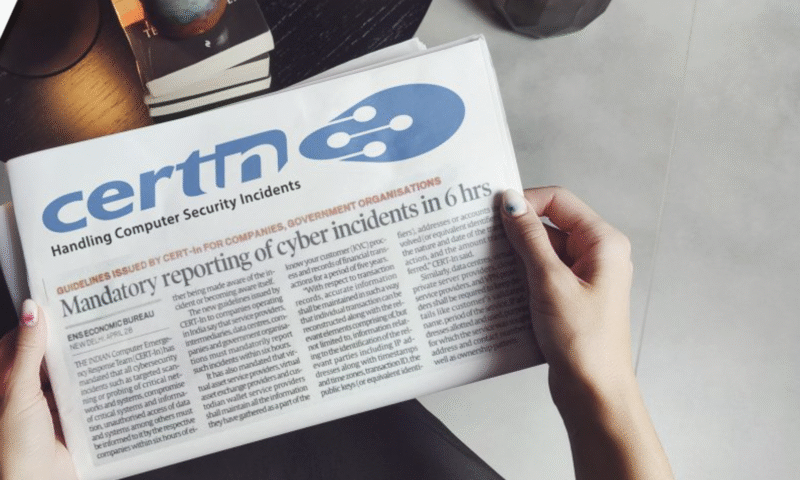
[CIVN-2025-0336] Multiple Vulnerabilities in HPE Aruba Networking AOS-CX
—–BEGIN PGP SIGNED MESSAGE—–
Hash: SHA256
Multiple Vulnerabilities in HPE Aruba Networking AOS-CX
Indian – Computer Emergency Response Team (https://www.cert-in.org.in)
Severity Rating: High
Software Affected:
· HPE Aruba Networking AOS-CX Software Version(s):
o AOS-CX 10.16.xxxx: 10.16.1000 and below
o AOS-CX 10.15.xxxx: 10.15.1020 and below
o AOS-CX 10.14.xxxx: 10.14.1050 and below
o AOS-CX 10.13.xxxx: 10.13.1090 and below
o AOS-CX 10.10.xxxx: 10.10.1160 and below
Overview:
Multiple vulnerabilities have been reported in HPE Aruba Networking AOS-CX that could be exploited by an unauthenticated attacker to Gain Unauthorized Access; Remote: Access Restriction Bypass, Arbitrary Command Execution, Code Execution, Denial of Service (DoS), Disclosure of Sensitive Information, Elevated Privileges, Session Reuse on the targeted system.
Target Audience:
Network Engineers / Administrators, System Administrators / DevOps, Security Operations Center (SOC) / Incident Response, Security Architects
Risk Assessment:
Identity Compromise and Credential Theft
Impact Assessment:
There are high risks of Confidentiality, Integrity, and Availability
Description:
1. Privilege Escalation Vulnerability CVE-2025-37155
This Vulnerability exists in the SSH restricted shell interface that fails to enforce proper privilege separation for read-only users. This Vulnerability exploited by an attacker to gain legitimate access to the management interface via SSH with read-only or low-level credentials.
Successful exploitation of this Vulnerability could allow an attacker with read-only access to escalate privileges to administrator access on the affected device.
2. Denial-of-Service (DoS) Vulnerability CVE-2025-37156
This Vulnerability exists in the AOS-CX software that allows specific administrative code to be executed.
Successful exploitation of this Vulnerability could allow an authenticated administrator to execute code that renders the switch non-bootable and effectively non-functional.
3. Command Injection Vulnerability CVE-2025-37157 CVE-2025-37158
These Vulnerabilities exist in AOS-CX Operating System due to insufficient input validation or improper command handling.
Successful exploitation of these Vulnerabilities could allow an attacker to execute arbitrary commands on the system.
4. Denial-of-Service (DoS) Vulnerability CVE-2025-26466
This Vulnerability exists in the OpenSSH package due to improper handling of SSH2_MSG_PING packets during the pre-authentication phase. This Vulnerability exploited by an attacker to send PING packets, causing an uncontrolled increase in memory and CPU consumption on the server side.
Successful exploitation of this Vulnerability could allow an attacker leads to the server crashing or becoming unresponsive, resulting in a denial of service.
5. Session Hijacking Vulnerability CVE-2025-37159
This Vulnerability exists in the web management interface of the AOS-CX OS
user authentication service could allow an authenticated remote attacker to hijack an active user session.
Successful exploitation of this Vulnerability could allow an attacker to maintain unauthorized access to the session, potentially leading to the view or modification of sensitive configuration data.
6. Broken Access Control (BAC) Vulnerability CVE-2024-37160
This Vulnerability exists in the web-based management interface could allow an authenticated remote attacker with low privileges to view sensitive information.
Successful exploitation of this Vulnerability could enable the attacker to
disclose sensitive data.
Solution
Apply appropriate software updates as mentioned by Security vendor
https://support.hpe.com/hpesc/public/docDisplay?docId=hpesbnw04971en_us&docLocale=en_US
https://support.hpe.com/hpesc/public/docDisplay?docId=hpesbnw04888en_us&docLocale=en_US
References:
https://support.hpe.com/hpesc/public/docDisplay?docId=hpesbnw04971en_us&docLocale=en_US
https://support.hpe.com/hpesc/public/docDisplay?docId=hpesbnw04888en_us&docLocale=en_US
CVE Name
CVE-2025-37155
CVE-2025-37156
CVE-2025-37157
CVE-2025-37158
CVE-2025-37159
CVE-2024-37160
CVE-2025-26466
– —
Thanks and Regards,
CERT-In
Incident Response Help Desk
e-mail: incident@cert-in.org.in
Phone: +91-11-22902657
Toll Free Number: 1800-11-4949
Toll Free Fax : 1800-11-6969
Web: http://www.cert-in.org.in
PGP Fingerprint: A768 083E 4475 5725 B81A A379 2156 C0C0 B620 D0B4
PGP Key information:
https://www.cert-in.org.in/s2cMainServlet?pageid=CONTACTUS
Postal address:
Indian Computer Emergency Response Team (CERT-In)
Ministry of Electronics and Information Technology
Government of India
Electronics Niketan
6, C.G.O. Complex
New Delhi-110 003
—–BEGIN PGP SIGNATURE—–
iQIzBAEBCAAdFiEE6r4Iam/Ey0c/KakL3jCgcSdcys8FAmkgjf8ACgkQ3jCgcSdc
ys+TEhAAnJlWBpylDB7C7Hm1p8VHQ1a3JsGoUA+GJ04oSrGd0o9rDLLPlBYTmhdS
urZNH4d48pcUe5MvmyKXTTmp+oWcZgik1ua0cK5jUIBLomfj6CMSOTVOBLgYDmS9
q4zYjHxpfez6V91/WOT2XfIEP6hji0zhlmgcVfYq+JJnCSEeczNinOofMxI7NN9l
YLjEpobNxbZoxrq5kzK8myl7lyczuh6Cs3omXXjYJi1N7FOjtBaWKyEcEjl5zj2A
LMQRy56VnAVvnCLLA+tDbsf2t/WdnuwZ/mPRRf6p3wFU0o+k4rKz5UBz8HyMNITG
HI9Yynj/exq5fAGtdQ4Odr4E3Go3T+HfRVS7w0Es7Q0wkriiunBrk7B7nPipyuyD
5e5VgSkB0tK496/PPQqczxJALlyp19mJgGBOhSNPS/PJ0W0YIaANRIcY7FwHoLMl
yrNvQx9kqcIC0UTjNQxXK8Uw2fPuEQnp4wDNM0Bzac82otYJLQ5DraZG9lqcnRBt
96Js97GaNwPHUYJRDjljAJecjmoxKseoilUIMIeSzj7TChCygngZ15TkZjXvfpWJ
46EwByqQf1VMk5v2xD7CZ7uJYQNYl0s1YUEKOinfjNUsutwTc7ZtQlkZ8GlQDAb7
U2+gS5uP6DBEii2ntlXWz6NlqM6ebsDOh4ZUCe2DhG0CrBfSYK4=
=OEte
—–END PGP SIGNATURE—–

![[CIAD-2026-0005] Multiple Vulnerabilities in Microsoft Products](https://teamwin.in/wp-content/uploads/2025/06/certin-new-e1751351599950-500x383.png)

